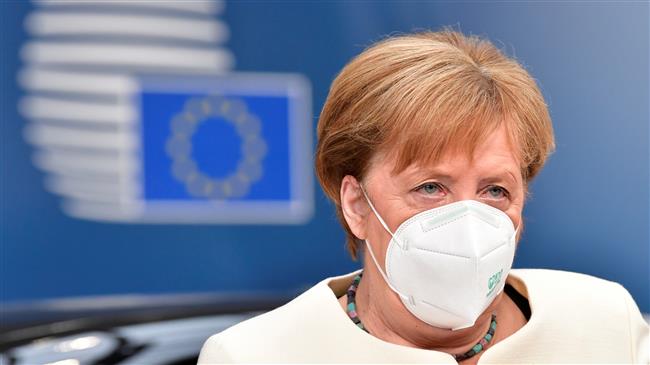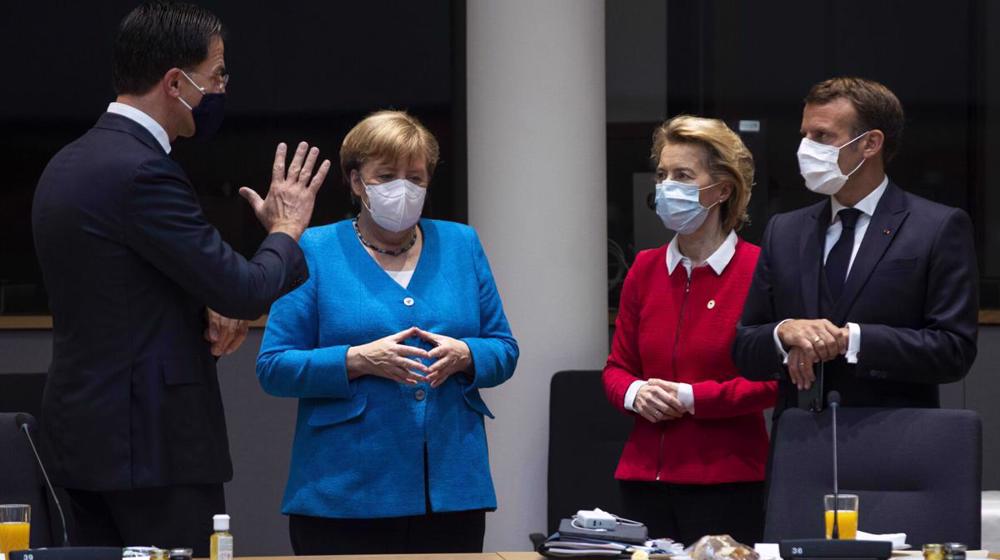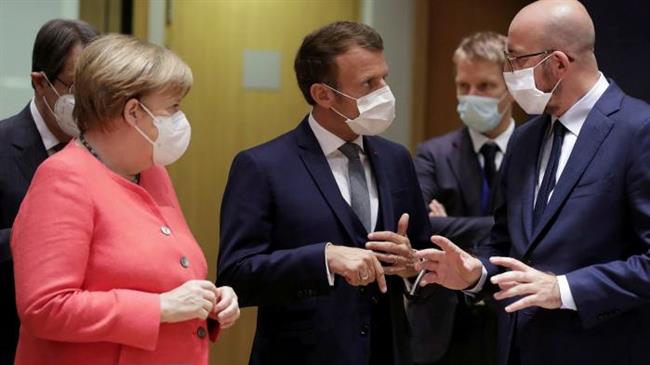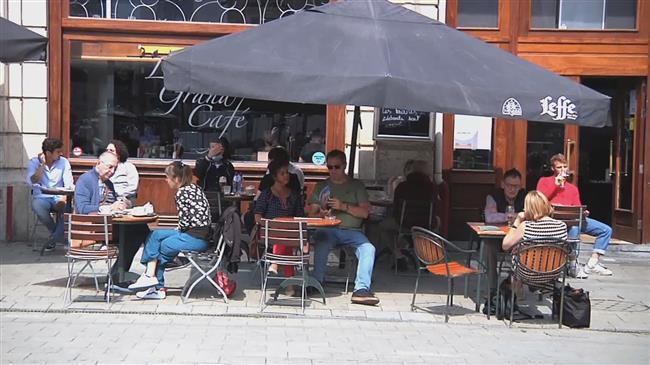Heated EU talks on virus aid fund enter 4th day amid impasse
European Union talks aimed at striking a deal over a massive coronavirus aid plan have entered a fourth day as the bloc’s leaders failed to hammer out deep differences on how to repair Europe’s post-pandemic economy.
Following all-night discussions, the EU leaders left the marathon summit in Brussels early Monday morning without any agreement on the proposed €750-billion aid package.
The negotiations — the longest EU summit in two decades — are scheduled to resume at 1400 GMT later in the day. The fund is being negotiated at the same time as the EU’s next long-term budget.
The EU heads of state remain divided on how to help the European Union states worst hit by the outbreak, including Italy and Spain.
Some leaders argued that the proposed package is too big and should go to the worst-hit states in the form of loans instead of grants.
The so-called “frugal five” group — consisting of Austria, Denmark, Finland, Sweden and the Netherlands — say €375 billion is as far as they will go, while others — including Spain and Italy — are refusing to agree on anything bellow €400bn.
Reports coming out of the talks said the debates grew tense at some points.
President of the European Council, Charles Michel, who is hosting the summit, on Sunday night reminded the European leaders of the gravity of the situation in Europe, which is the worst-hit continent by the coronavirus disease (COVID-19) with more than 200,000 deaths.
He called on the European leaders to double their efforts towards reaching a deal and achieving the “mission impossible.”
“Are the 27 EU leaders capable of building European unity and trust or, because of a deep rift, will we present ourselves as a weak Europe, undermined by distrust?” Michel said.
Meanwhile, European Central Bank (ECB) President Christine Lagarde said it would be better for EU leaders to sign an “ambitious” aid package rather than ink a quick deal at any cost.
“Ideally, the leaders’ agreement should be ambitious in terms of size and composition of the package ... even if it takes a bit more time,” she said.
Lagarde’s comment suggest she was not worried about any negative impact on financial markets if the summit fails.
‘Some progress made but failure still possible’
Following the adjournment of the summit, Dutch Prime Minister Mark Rutte, who is leading the “frugal five” group, told reporters on Monday that the leaders were “close to failure” and talks could still “fall apart” despite progress on some issues.
“At times it didn’t look good last night, but I feel that on the whole we are making progress,” Rutte said.
French President Emmanuel Macron also urged EU leaders to “take responsibility,” warning of the dire consequences of cutting the grants to the crisis-hit countries as envisaged in the proposed budget.
“We are facing an unprecedented health, economic and social crisis,” he warned, insisting that the EU leaders must endorse the fund “because our countries need it and European unity needs it.”
Reports said Macron had banged his hand on the table during the talks in the early hours of Monday and threatened to walk out.
Commenting on the stalemate, French Finance Minister Bruno Le Maire told the BMF TV that the future of the continent was at stake, and that a deal was possible and a necessity.
In turn, Austrian Chancellor Sebestian Kurz said after the adjournment of the talks that progress was being made at the discussions.
“Tough negotiations have just come to an end and we can be very satisfied with today’s result. We will continue in the afternoon,” said Kurz.
Many EU leaders had largely brought the COVID-19 pandemic under control and were considering easing the restrictions before fresh clusters were detected in European states.
Director of the European Center for Disease Prevention and Control, Andrea Ammon, warned against easing the restrictive measures in countries across the continent.
Ammon insisted it was not a question of if there will be a renewed surge of the coronavirus pandemic but “when and how big.”
US fighter aircraft shot down ‘in friendly fire’ amid aggression on Yemen
Yemeni FM: Israel’s sponsors accountable for ongoing aggression on Sana’a
Eight Palestinians killed as Israel attacks Gaza school, hospitals
VIDEO | Rome, Milan host new protests in solidarity with Palestinians
Dec. 21: ‘Axis of Resistance’ operations against Israeli occupation
Spain jurists demand ties with Israel ties be cut
VIDEO | Press TV's news headlines
VIDEO | Iran honors top Science Olympiad medalists















 This makes it easy to access the Press TV website
This makes it easy to access the Press TV website